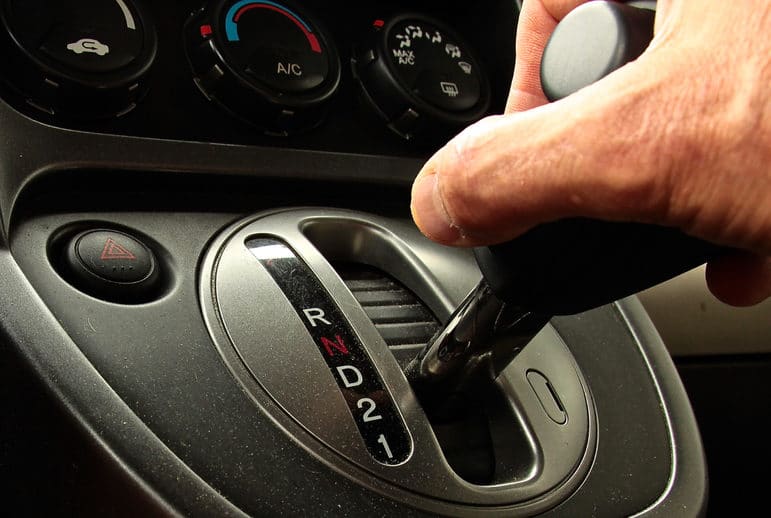
How to Start a Driving School in Minnesota: A Step-by-Step Guide

Here you’ll learn everything you need to start your Driving School in Minnesota
Compared to many states, Minnesota makes it relatively easy to establish a driving school. You still need to complete forms, and meet requirements, but the state seems to be driving-school friendly.
Minnesota driving schools may offer classroom instruction, behind-the-wheel training, or both. You will have to plan your curriculum before applying for your school and instructor licenses.
How to open your driving school in Minnesota
- Minnesota makes it easy to start a driving school, but you have to have everything ready to go before you apply, including your office and classroom space.
- Driving instructors must have been trained.
- Your location can be anywhere, but you may not offer classroom education out of a residential space.
- You must keep records for each student, and provide written contracts.
- The classroom curriculum must last for 30 hours, while you must provide 6 hours of behind-the-wheel instruction.
Driving School Licensing and Requirements
General requirements
To operate a driving school in Minnesota, you will need to be licensed by the state. Licenses are valid for 1 year from the date of issuance. Renewal applications must be submitted at least 10 days in advance, but not more than thirty.
Applications should be submitted online. Your application packet must include:
- A completed application form and fee of $150.
- A completed surety bond must be posted; the bond amount is based on the number of students enrolled in the school. The amount of the bond for new schools is not specifically stated in the regulations. Check with your carrier on the difference in costs between a $10,000, $20,000, and $30,000 surety bond–the bond amount is adjusted after the first year.
- A copy of the lease agreement/deed for the your office and instruction locations.
- Samples of your student contract
- An insurance certificate for driver education vehicles.
- Vehicle inspection certificates for vehicles over six years of age.
The current regulations for driver training schools are available in Chapter 7411 of the Minnesota Administrative rules.
Minnesota requires the following minimum liability insurance coverage on each vehicle you use in your school:
- $250,000 bodily injury for a single person
- $500,000 bodily injury for multiple people
- $100,000 property damage
- $40,000 medical expenses
- Uninsured motorist coverage if any part of your training takes place on public streets.
If you have employees, you must carry workers’ compensation insurance covering them–and you–in the event of injury while on the job.
Driving School Owner’s License
The holder of the a driving school owner’s license may be an individual, partnership, corporation, or limited liability company.
Driving Instructor’s License
Driving instructors must meet the following basic requirements:
- Be at least 21 years old.
- Have held a valid driver’s license for at least 3 years.
- Have a valid license for the class of vehicle you will be providing instruction for.
- Have at least a high school diploma.
The driving instructor application form must be submitted.
Instructors must also demonstrate familiarity with the requirements of classroom and laboratory (behind the wheel) instruction. The best way to demonstrate this is to complete a driving instructor’s course. In addition, passing a test will be required.
If you will be teaching on-street or range laboratory (behind the wheel) instruction, your license must be current, and you may not have many recent convictions.
Location
Your driving school must have an administrative office in Minnesota. It must be a permanent office under your exclusive control for at least one year from the date you receive your driving school license.
Your classroom and laboratory instruction sites may be separate from your administrative offices. Neither your office nor instruction locations may be within 150 feet of any location where either the road or written driver’s license tests are given.
Locations for instruction may not be in a residence. You may rent space for classroom instruction provided, or may have it as part of your permanent setup.
Classrooms must be at least 300 square feet in size, and must be suitable for instruction, with bathroom facilities, adequate heating, lighting, and ventilation.
Don’t ever give a student or parent the impression that your instruction guarantees receiving a driver’s license–you may mention your pass rate. You may not use the word “state” in your signage or advertising.
Records and Contracts
You will need to keep records of all students for at least five years after they finish their training with you. The Department of Public Safety may inspect and make copies records at anytime. Minnesota appears to permit either electronic or paper record keeping. We recommend that you scan each contract into a student’s file if you are going to keep records electronically.
By the end of January of each year, you must submit a report to the Commissioner of the Department of Public Safety which includes
- The number of students enrolled during the previous calendar year.
- The number of students who completed instruction during the previous calendar year.
You must maintain records of each student enrolled, as well as
- address, date of birth, contract number
- Dates and hours of all instruction
- Types of instruction.
Your contracts with your students must be in writing and in a form approved by the DPS. The DPS provides a sample contract which you can use to create your own. Contracts must have unique numbers or identifier and be printed on your letterhead. You may not offer premiums or discounts for failure to obtain a driver’s license. In addition, your contract must
- Include the start and end dates of all instruction.
- State the number of laboratory hours, which may not exceed thirty–this may be extended with a new contract and only with the approval of DPS.
- State the start and end dates of the first 15 hours of classroom instruction, when teaching a concurrent curriculum, as well as those dates for the second 15 hours–the end date for the second 15 hours in a concurrent curriculum must be within 90 days for the end of the first 15 hours.
- You must include a refund policy in the contract.
The Driving School Curriculum in Minnesota
Minnesota mandates the specific topics covered by the curriculum for every driving school, both for the in-class as well as the behind-the-wheel portions of driver’s education. You are, of course, free to add information.
Your classroom course must last for 30 hours. You may offer this curriculum in two ways:
- Concurrent classroom instruction: You offer classroom instruction in two fifteen hour segments, with behind-the-wheel instruction taking place during the course of the second fifteen hour curriculum.
- Consecutive classroom instruction: All thirty hours of classroom instruction is provided before behind-the-wheel training starts.
If you provide concurrent instruction, six hours of behind-the-wheel instruction must be included during the second fifteen hours of classroom instruction. All classroom instruction must be finished before hours five and six of behind the wheel instruction takes place.
You may not provide more than two hours of laboratory instruction to students under 18. You may substitute some simulator time and range instruction for on-road laboratory instruction:
- 2 simulator hours may substitute for one daily hour of the laboratory instruction.
- Four hours of total on-road time must be included, unless you provide eight hours of simulator time and two hours of range instruction time–these 10 hours off-road laboratory time allow you to provide 3 hours of on-road time.
Minnesota expects the classroom portion of the course will cover the following topics; you will have to provide an outline of your curriculum as part of your application.
The following items MUST be in the first 15 hours of the concurrent curriculum:
- Information on the effects of alcohol and drug consumption on the ability to drive.
- Driving decision making.
- The content and purpose of motor vehicle and traffic laws.
- At least 30 minutes on interacting with a school bus.
- Railroad grade crossings
- Carbon monoxide poisoning.
These other curriculum items must be in either part of a concurrent curriculum:
- Highway decision-making
- Occupant restraints
- Speed decisions in differing conditions
- Decision making during a variety of highway conditions and situations
- Vehicle ownership, leasing, insurance, and maintenance
- Road rage and the effect of emotions on driving.
- Tires and turning
- Ways to become a better driver
- Organ donation
Your behind-the-wheel course must ensure that each student can demonstrate ability in the following skills:
- Orientation into laboratory instruction and the vehicle used
- Basic skills in speed control and moving forward and in reverse.
- Basic turning techniques.
- Changing lanes, crossing intersections, passing, merging
- Safe city, highway, and freeway driving, and interacting with other drivers.
- Interacting with commercial vehicles
- Handling special conditions and emergencies
Commercial Driver’s License Instruction
Providing instruction for students pursuing a CDL in Minnesota generally follow those for the regular driver’s license. In this section, we’ll note the key differences.
Your instructions will have to demonstrate a wide range of skills. They must have a CDL appropriate to the license their students seek. CDL instructors will have to show that they have driven the appropriate class of vehicle for at least 3,000 hours during the most recent five years.
In addition to the items noted previously, your contracts will have to reflect
- The hours of instruction and a description of the course.
- The hourly or course fee
- That you will have to notify the DPS if the student can’t complete the course.
Starting a Small Business in Minnesota
Your driving school is not just subject to the requirements for driver’s education in Minnesota. You also need to establish your Driving School as a small business, and have to consider a number of factors. The form of business you take up, as well as the procedures, are appropriate topics of conversation with your lawyer and accountant. The considerations we offer here are not legal advice, but should provide you with things to think about as you set up your business.
Business Registration
All businesses need to register in Minnesota, especially the business name—the “doing business as” certificate. Banks may not be willing to set up your account until you have that DBA form. We’ll include where to register in the business structures below.
You will also need to obtain a Federal Employer Identification Number. Banks may need it for your business accounts, and you may be wanting to employ people. To obtain an EIN, go to the IRS website and complete the application form you find linked there.
You will need to register also with the Minnesota Department of Revenue.
Business name
Minnesota provides a guide to the different business structures available in the state.
All businesses must register with the Minnesota Secretary of State.
Before you get going, you’ll want to check to see if the business name you want is in fact available in Minnesota. You can search the Minnesota database, as well as visit the office of the county recorder.
Once you know your business name is available, you can reserve it online with the Secretary of State–if you’re forming a corporation or LLC.
Sole Proprietorship
Owning your own business is the easiest one to set up, but also may open you to liability concerns. As a sole proprietor, your business is simply part of your life. You keep a separate set of books, and complete a Schedule C for your 1040 form every April.
Sole proprietorships can expose the proprietor for full liability, even with insurance. That may mean that if you are sued, you may lose your home and property, as well as your personal bank accounts and other assets. This risk may not be worth the ease and independence.
Corporations and LLCs
You may set up a full corporation (“Inc.”) as your business structure. Corporations limit your liability for loss to your investment in it, as a general rule (although banks may require you to be obligated personally if you take out a loan to get your business going). This form of business keeps your personal assets safe.
As an owner of a corporation, you’ll have to set up your driving school consistently with the rules for corporations in Minnesota–those rules can be found at. You’ll also have to decide whether to be an S Corporation or a C Corporation. Generally, the S Corporation form is set up for small businesses. It allows income and taxes to pass through to the owners. You will want to discuss these forms with your attorney and accountant.
You may be able to set your driving school up as an LLC in Minnesota. The LLC form provides the same limited liability as a Corporation, but do not have to comply with the corporate formalities most states require, including items like bylaws, required stockholder meetings, and minutes (although minutes of meetings are probably a good idea).
You’ll have to discuss the advantages and disadvantages for the LLC with your attorney and accountant.
Both Corporations and LLCs file with the Secretary of State. In addition to name reservation, you’ll need to submit the following.
- Corporations submit Articles of Incorporation
- LLCs submit Articles of Organization
Now What Do I Do?
Once you’ve complied with all the legal requirements to be both a driving school and a small business in Minnesota, you need to get students.
Getting students requires marketing—largely on the internet. You will need the following systems set up to obtain students:
- A website—focused on the types of students you want to attract, and aimed at your locality.
- The website should also include a blog, which allows you write about a variety topics and engage in Search Engine Optimization—which will drive traffic to your site.
- A Facebook page, linked to your website, to become noticed and drive traffic.
- Getting testimonials from successful students.
Marketing is something you will have to devote time to. DrivingSchool.Marketing can help you get the best bang for your marketing buck.
Conclusion
Minnesota’s new drivers are waiting for you to show them the way to a safe career driving on the state’s roads. Your driving school will be ready to go with a few basic steps.
Disclaimer: This page is part of DrivingSchool.Marketing’s series of state and provincial pages designed to help entrepreneurs like you start driving schools. States change their regulations, or the web pages they host their forms. While we believe these rules are accurate as of the date of publication, we cannot guarantee full accuracy. Please let us know if you spot any problems.






















